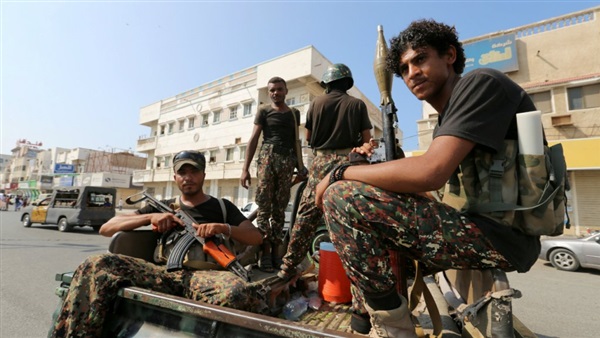Yemen warring parties say port city ceasefire starts on Tuesday

A ceasefire agreed between Yemen’s warring parties
in Hodeidah will begin on Dec. 18, sources from both sides and the United
Nations said on Sunday, to try to avert more bloodshed in a port city vital for
food and aid supplies.
The Iranian-aligned Houthi group and the
Saudi-backed government of Abd-Rabbu Mansour Hadi agreed on Thursday after a
week of U.N.-sponsored peace talks in Sweden to cease fighting in the Red Sea
city and withdraw forces.
The Houthis control most towns and cities, including
Hodeidah and the capital Sanaa, from where they ousted Hadi’s government in
2014 prompting a Saudi-led coalition to intervene. The government is now based
in the southern port of Aden.
Residents have reported continued skirmishes, mostly
at night, on the outskirts of Hodeidah, where thousands of coalition-backed
Yemeni troops have massed.
Yahya Sarea, a senior official of the Houthi armed
forces, told reporters in Sanaa the ceasefire was set to start on Tuesday.
“We hope they will be true to their words, otherwise
we are ready to respond,” he added.
A source in the Saudi-backed government confirmed
the date and said it was officially communicated to both parties in a letter
from special Yemen envoy Martin Griffiths.
“While the Hodeidah agreement states an immediate
start of the ceasefire, it is normal that it takes 48-72 hours to be
communicated at the operational level,” a U.N. source said. “We expect the
ceasefire to be implemented starting Tuesday.”
The United Nations is trying to avert a full-scale
assault on the port, the entry point for most of Yemen’s commercial goods and
crucial aid supplies. It is a lifeline for millions of Yemenis facing
starvation.
The agreement, the first significant breakthrough in
peace efforts in five years, was part of confidence-building measures discussed
at peace talks that aim to pave the way for a wider truce and a framework for
political negotiations.
Under the deal, international monitors would be
deployed in Hodeidah and all armed forces would pull back completely within 21
days of the start of the ceasefire.
A U.N.-chaired Redeployment Coordination Committee
including both sides would oversee implementation. The committee is expected to
start its work this week, the U.N. source said.
Griffiths has asked the Security Council to pass a
resolution backing deployment of a robust monitoring regime to oversee
compliance with the truce, headed by retired Dutch Major General Patrick
Cammaert.
The combatants are due to hold another round of
talks in January to agree on the political framework for negotiations to end
the war that has killed tens of thousands of people and spawned an urgent humanitarian
crisis.





